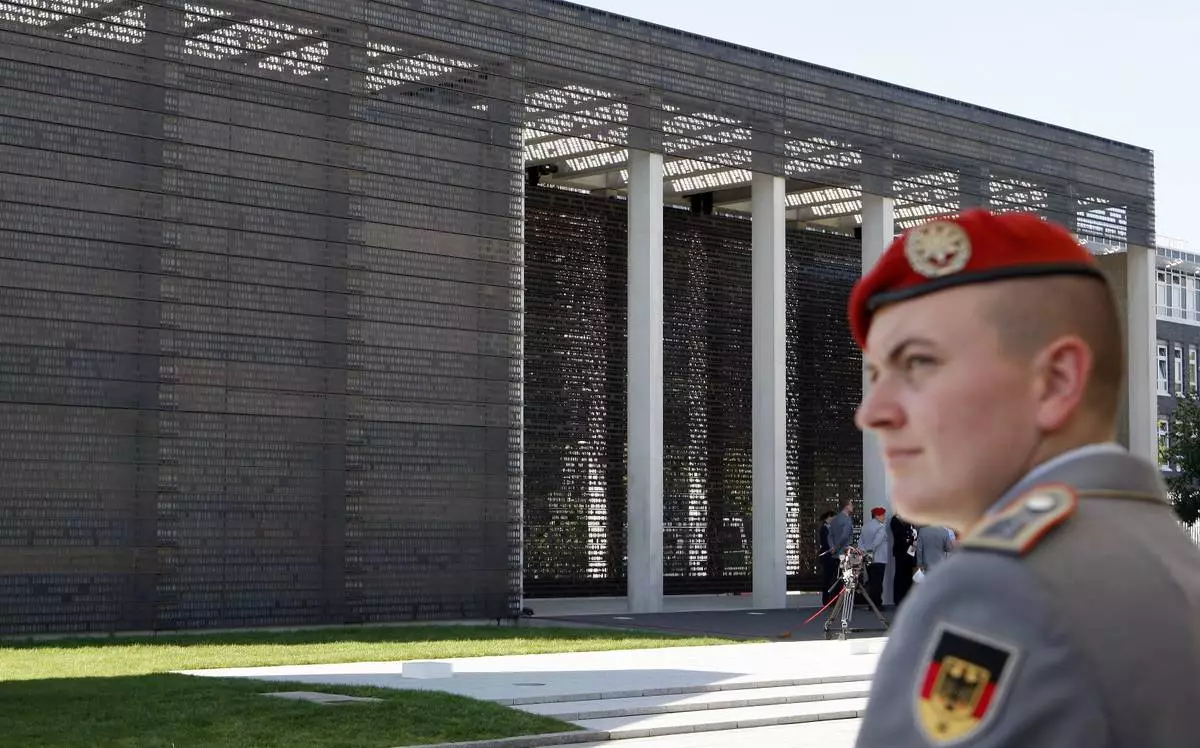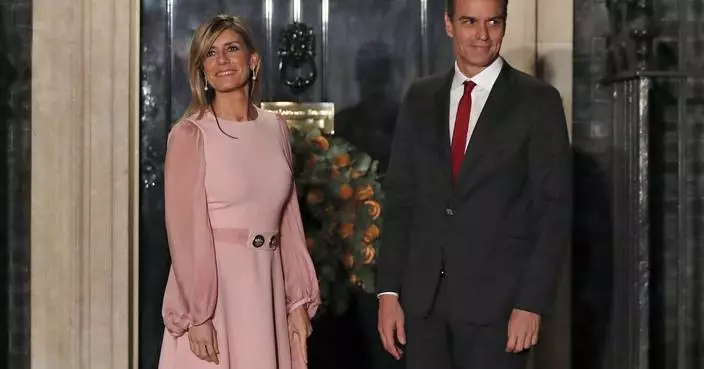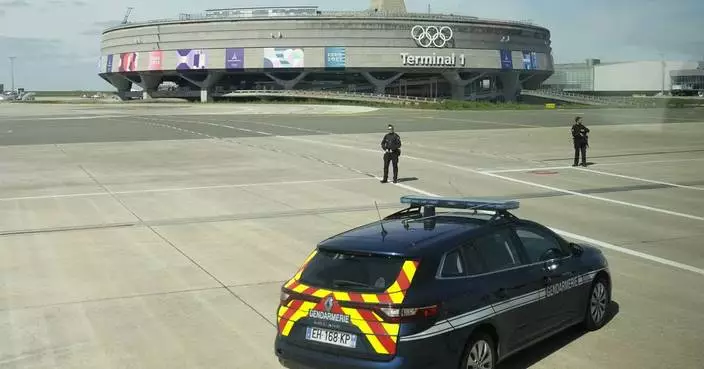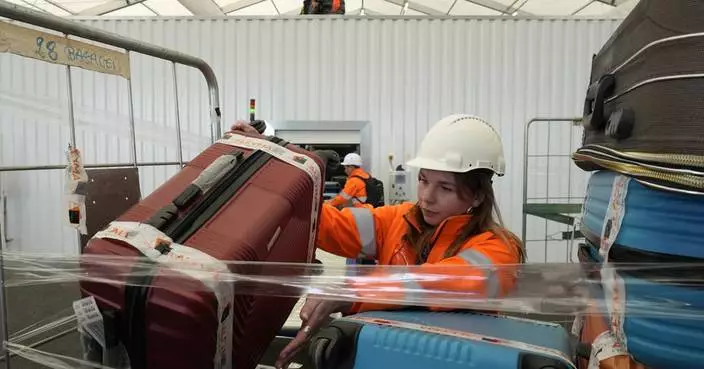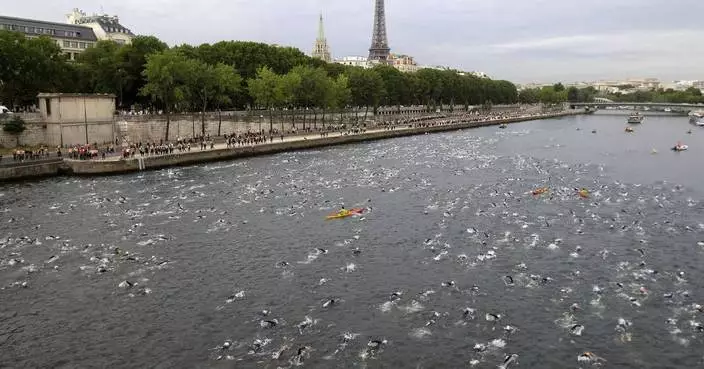From the gold medalist down to the last-place finisher, what the women snowboarders really wanted was a second chance.
On a day filled with sunshine, smiles and plenty of sick tricks, they got that — and made the most of it.
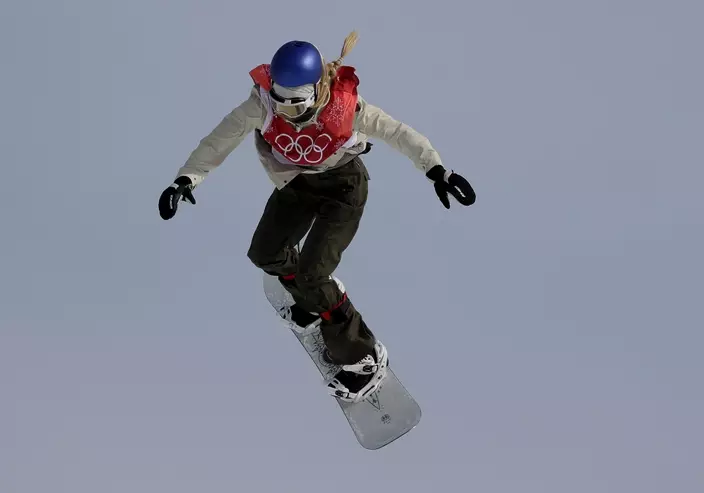
Anna Gasser, of Austria, jumps during qualification for the women's big air snowboard competition at the 2018 Winter Olympics in Pyeongchang, South Korea, Monday, Feb. 19, 2018. (AP Photo/Kirsty Wigglesworth)
The high-flying world of Big Air made its brash, high-flying debut at the Olympics on Monday, and by all accounts, it was a hit.
"Everyone showed their absolute best," said Anna Gasser of Austria, who won the qualifying round and will jump last of the 12 riders in Friday's finals. "And that's what we all needed after slopestyle."
Slopestyle was not pretty , and almost every rider agreed it should not have been contested last Monday, when shifting, whipping winds turned an already treacherous sport into something even more dangerous. Riders completed only nine of the 50 runs without a fall.
Big Air, on the other hand, was great to watch.
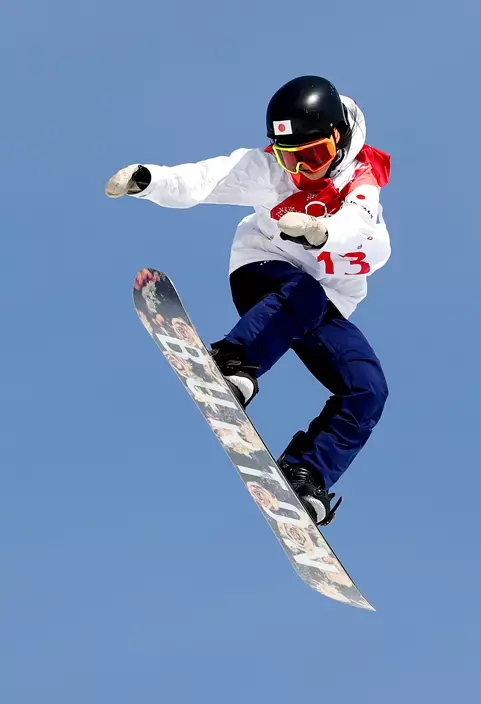
Reira Iwabuchi, of Japan, jumps during qualification for the women's big air snowboard competition at the 2018 Winter Olympics in Pyeongchang, South Korea, Monday, Feb. 19, 2018. (AP Photo/Matthias Schrader)
Twenty-six of the world's best riders made two jumps each — speeding down a 160-foot-long (50-meter) ramp to vault off a huge kicker and travel up to 100 feet (30 meters) below for the landing. Where slopestyle is about stringing together a succession of tricks for an entire run, Big Air is about who can throw the best single jump.
Though there were no medals at stake in the qualifying round, many of the riders jumped as though there were. The bulk of the finalists needed 900-degree spins — the sort of tricks that often win Big Air contests — simply to advance to the medal round.
"Watching today, I'm just like, 'Yes. This is what's up,'" American Jamie Anderson said.
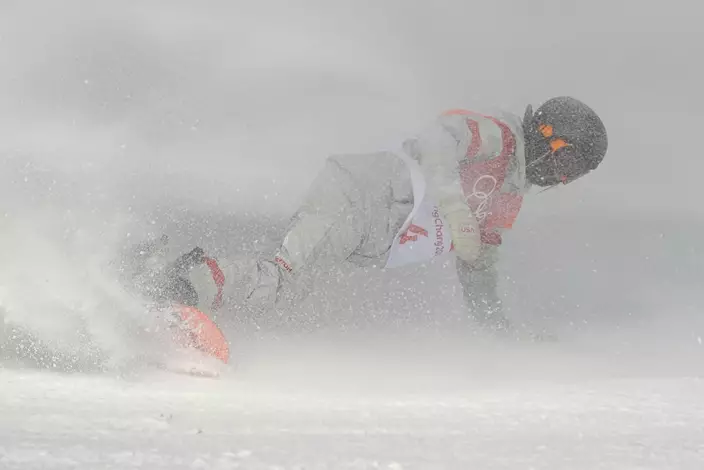
Julia Marino, of the United States, lands during qualification for the women's big air snowboard competition at the 2018 Winter Olympics in Pyeongchang, South Korea, Monday, Feb. 19, 2018. (AP Photo/Kirsty Wigglesworth)
Anderson won her second straight slopestyle gold medal last week with an efficient but wind-hampered run that came straight from the days of microfiche. Though she was one of the few who put on a brave face and tried to make the best of it, she was the first to concede the Olympic debut of Big Air showed her sport in a much better light.
"It was really unfortunate with the weather last week and not really being able to showcase how hard everyone has worked in the last handful of years," Anderson said. "But I think it was good fuel on the fire, because everyone is charging today."
Zoi Synnott Sadowski of New Zealand became the first woman to land a switchback 900 — in which she rode backward, took off backward and twisted for 2 ½ rotations — in competition. She finished fifth.
Gasser, a favorite in this event, finished first in qualifying with a cab double-cork 1080, which is sometimes the trick she'll use to win a contest.
Norway's Silje Norendal wobbled on the landing on both her cab 900s and squeaked into the final in the 10th spot; normally that trick, if landed at all, would have put her comfortably into a final.
"This is the craziest qualifier we've ever had," said Norendal, who summed up the vibe at slopestyle a week earlier by admitting that all she wanted to do was stand at the top of the hill and cry. "I'm just happy to be part of everything that's happening."
Though many of these riders prefer slopestyle because it showcases all their skills instead of just one, Norendal said Big Air has a way of bringing more people into the big circus tent that snowboarding has become, especially since it was brought, somewhat reluctantly, into the Olympics 20 years ago.
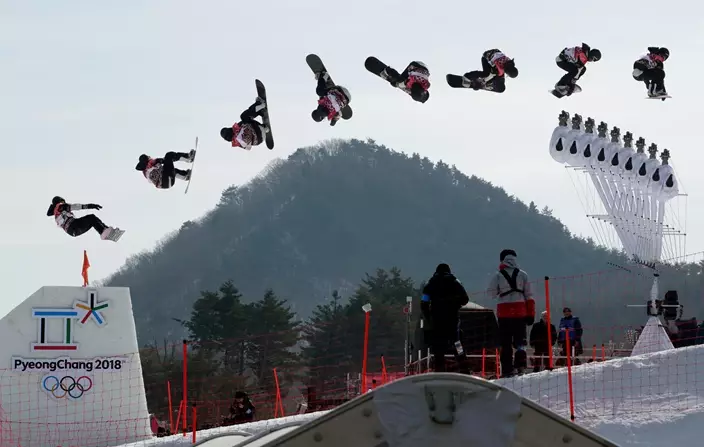
In this multiple exposure image Laurie Blouin, of Canada, jumps during qualification for the women's Big Air snowboard competition at the 2018 Winter Olympics in Pyeongchang, South Korea, Monday, Feb. 19, 2018. (AP Photo/Dmitri Lovetsky)
"Even if you fell, if you went big and you fell, they'd all go 'Whooooo,'" she said. "That's pretty cool. That's all I want. I don't really need people to understand what we do, but just to enjoy it."
On this day — a day when the best women in snowboarding got back to showcasing their finest stuff — the fans weren't the only ones loving it.
"The tricks were amazing," Gasser said. "I was standing up there and I was like, 'This is so sick.'"



